With snow now everywhere in the UK, it’s chilly enough to forget some of winter’s less obvious compensations – like the magnificent sunset I snapped this afternoon.
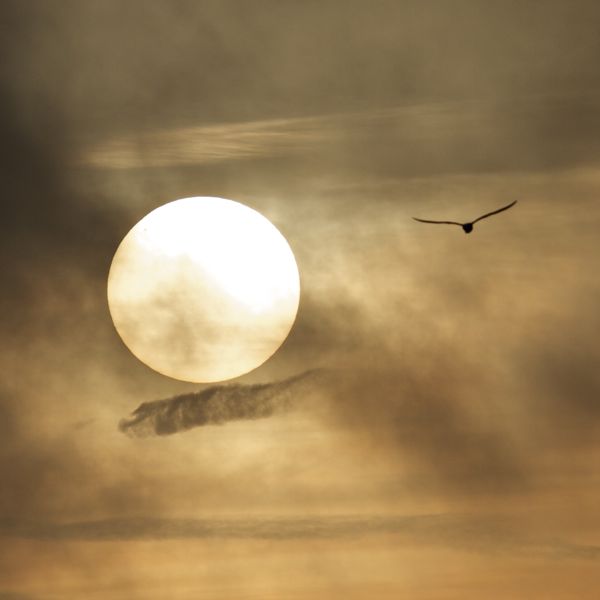
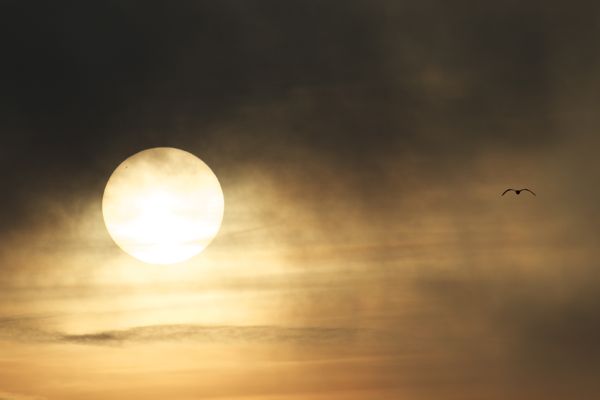
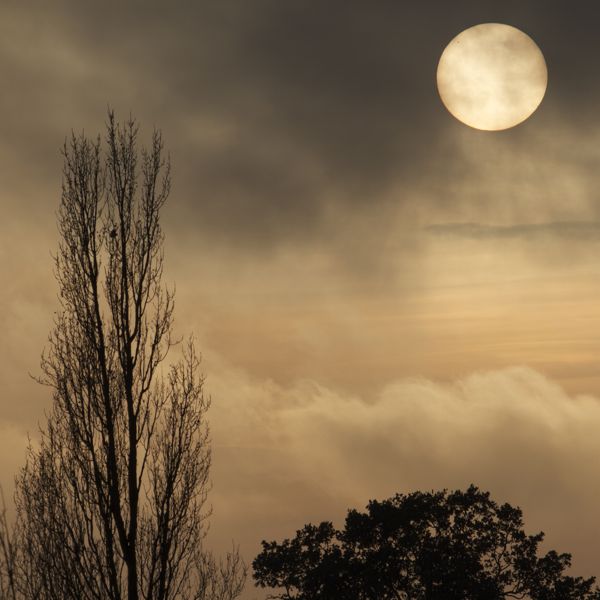
Under these sort of cloud conditions, the intensity of the sun’s light is reduced but its image remains sharp. It may even be possible to see large sunspot groups – if they’re there – with the naked eye. I wasn’t able to see anything with my naked eye on this occasion, but there is a small speck visible in the top left of the disk in the picture above. Through a 400mm lens, that speck looks like this:
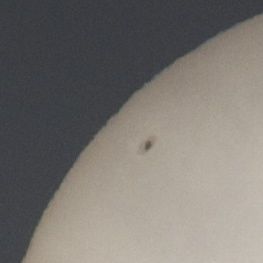
The two parts of the spot, the umbra and penumbra at different temperatures, are clearly visible. There are actually a couple more very small sunspots visible on the full disk: click the picture below for a larger image:
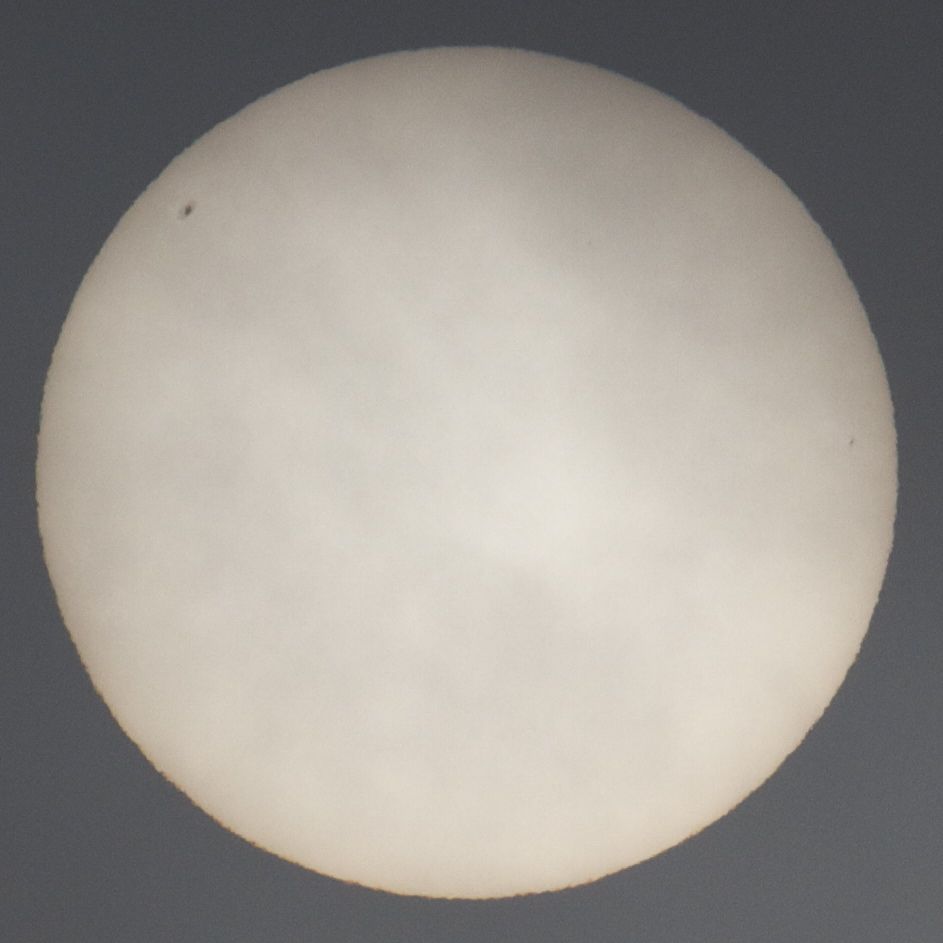
All in all, not a bad afternoon’s improvised astronomy.
WARNING: As always with the sun, you should never look at it directly with any kind of optical instrument, and even staring directly at the sun with just your eyes can be dangerous. I took these pictures by pre-focusing to infinity and pointing the camera without looking directly at the sun’s disk, which was low in the sky at sunset and behind cloud. The safest way to view the sun and sunspots is to use a telescope to project their image onto a piece of paper.